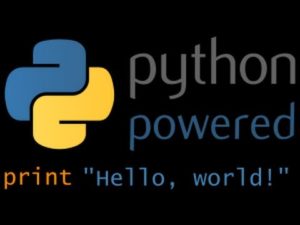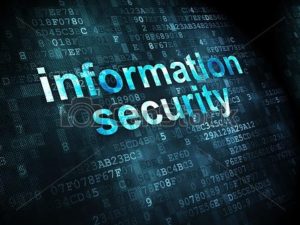Current Teaching
Spring 2020
Digital Forensic Sciences - DFSK90
The course covers both the principles and practice of digital forensics. The societal and legal impact of computer activity: computer crime, intellectual property, privacy issues, legal codes; risks, vulnerabilities, and countermeasures; methods and standards for extraction, preservation, and deposition of legal evidence in a court of law. This course provides hands-on experience in different computer forensics situations that are applicable to the real world. Students will learn different aspects of digital evidence: ways to uncover illegal or illicit activities left on the disk and recovering files from intentionally damaged media with computer forensics tools and techniques.

Cyber Security - CSCRR023

This subject complements other modules by examining the subject from the criminal angle and presenting a study of computer crime and the computer criminal, history, causes, development and repression through studies of surveys, types of crime, legal measures, and system and human vulnerabilities. It also covers examine the effects of computer crime through the experiences of victims and law enforcement and looks at the motives and attitudes of hackers and other computer criminals.
Fall 2019
Python Course - PTER345
This course introduces computers and computer programming using Python. Python is a new computer language that is widely used in industry, scientific research, game programming, and web applications. Students will solve programming problems using procedural programming constructs such as loops, branching structures, and functions. Students will write programs that are testable and maintainable (using good programming style, naming conventions, and comments). This course is a good introduction for students who want to explore Python programming, and for beginners upcoming object-oriented programming courses.

Web Engineering - WECS305

This course is an overview of the modern Web technologies used for Web development. The purpose of this course is to give students a basic understanding of how things work in the Web world from the technology point of view as well as to give the basic overview of the different technologies. The topics include (although in some cases briefly): History of the Web, Basic Models, and Architectures, Requirement engineering, Web application technologies, Hypertext Markup Language (HTML), Extensible HTML (XHTML), Cascading Style Sheets (CSS), DHTML, XML and JavaScript. Modelling Web Applications, Architectures.
Information Security - ISCS1002
This course covers fundamental issues and first principles of security and information assurance. The course will look at the security policies, models and mechanisms related to confidentiality, integrity, authentication, identification, and availability issues related to information and information systems. Other topics covered include the basics of cryptography (e.g., digital signatures) and network security (e.g., intrusion detection and prevention), risk management, security assurance, and secure design principles.
Students can use BlackBoard and to download respective course materials, uploading assignments, attending quizzes and use BlackBoard Collaborate(Virtual Classes)

![]()
Spring 2020
Digital Forensic Sciences – DFSK90
 The course covers both the principles and practice of digital forensics. The societal and legal impact of computer activity: computer crime, intellectual property, privacy issues, legal codes; risks, vulnerabilities, and countermeasures; methods and standards for extraction, preservation, and deposition of legal evidence in a court of law. This course provides hands-on experience in different computer forensics situations that are applicable to the real world. Students will learn different aspects of digital evidence: ways to uncover illegal or illicit activities left on the disk and recovering files from intentionally damaged media with computer forensics tools and techniques.
The course covers both the principles and practice of digital forensics. The societal and legal impact of computer activity: computer crime, intellectual property, privacy issues, legal codes; risks, vulnerabilities, and countermeasures; methods and standards for extraction, preservation, and deposition of legal evidence in a court of law. This course provides hands-on experience in different computer forensics situations that are applicable to the real world. Students will learn different aspects of digital evidence: ways to uncover illegal or illicit activities left on the disk and recovering files from intentionally damaged media with computer forensics tools and techniques.
Cyber Security – CSCRR023

This subject complements other modules by examining the subject from the criminal angle and presenting a study of computer crime and the computer criminal, history, causes, development and repression through studies of surveys, types of crime, legal measures, and system and human vulnerabilities. It also covers examine the effects of computer crime through the experiences of victims and law enforcement and looks at the motives and attitudes of hackers and other computer criminals.
Fall 2019
Python Course – PTER345
 This course introduces computers and computer programming using Python. Python is a new computer language that is widely used in industry, scientific research, game programming, and web applications. Students will solve programming problems using procedural programming constructs such as loops, branching structures, and functions. Students will write programs that are testable and maintainable (using good programming style, naming conventions, and comments). This course is a good introduction for students who want to explore Python programming, and for beginners upcoming object-oriented programming courses.
This course introduces computers and computer programming using Python. Python is a new computer language that is widely used in industry, scientific research, game programming, and web applications. Students will solve programming problems using procedural programming constructs such as loops, branching structures, and functions. Students will write programs that are testable and maintainable (using good programming style, naming conventions, and comments). This course is a good introduction for students who want to explore Python programming, and for beginners upcoming object-oriented programming courses.
Web Engineering – WECS305
 This course is an overview of the modern Web technologies used for Web development. The purpose of this course is to give students a basic understanding of how things work in the Web world from the technology point of view as well as to give the basic overview of the different technologies. The topics include (although in some cases briefly): History of the Web, Basic Models, and Architectures, Requirement engineering, Web application technologies, Hypertext Markup Language (HTML), Extensible HTML (XHTML), Cascading Style Sheets (CSS), DHTML, XML and JavaScript. Modelling Web Applications, Architectures.
This course is an overview of the modern Web technologies used for Web development. The purpose of this course is to give students a basic understanding of how things work in the Web world from the technology point of view as well as to give the basic overview of the different technologies. The topics include (although in some cases briefly): History of the Web, Basic Models, and Architectures, Requirement engineering, Web application technologies, Hypertext Markup Language (HTML), Extensible HTML (XHTML), Cascading Style Sheets (CSS), DHTML, XML and JavaScript. Modelling Web Applications, Architectures.
Information Security – ISCS1002
 This course covers fundamental issues and first principles of security and information assurance. The course will look at the security policies, models and mechanisms related to confidentiality, integrity, authentication, identification, and availability issues related to information and information systems. Other topics covered include the basics of cryptography (e.g., digital signatures) and network security (e.g., intrusion detection and prevention), risk management, security assurance, and secure design principles.
This course covers fundamental issues and first principles of security and information assurance. The course will look at the security policies, models and mechanisms related to confidentiality, integrity, authentication, identification, and availability issues related to information and information systems. Other topics covered include the basics of cryptography (e.g., digital signatures) and network security (e.g., intrusion detection and prevention), risk management, security assurance, and secure design principles.
Students can use BlackBoard and to download respective course materials, uploading assignments, attending quizzes and use BlackBoard Collaborate(Virtual Classes)








